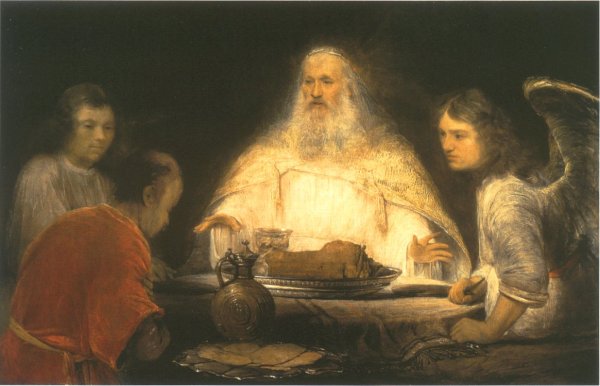Regarding Noach, the Torah states that he “walked with God” (Ber. 6:9). To Avraham, on the other hand, God commanded, “Walk before Me” (Ber. 17:1). Noah walked with God, while Avraham walked before God. What is the difference? Which is better?
Interestingly, we find in the Torah a third expression for living a holy life. The Torah charges us to “walk after the Lord, your God” (Devarim 13:5). Where does “walking after God” fit in?
Repairing the Universe
We must first understand this metaphor of “walking.” Why not “standing with God” or “running with God”?
After Adam sinned and the natural order underwent a drastic shift, God did not seek to correct the world instantaneously. Rather, humanity was to gradually correct itelf, repairing the universe in stages until “the earth will be filled with awareness of God” (Yishayahu 11:9). This is the inner significance of the walk of the righteous: a slow but steady moral progression.
Similarly, the Sages wrote that prophecy is not revealed to the world all at once, but in a measured fashion, according to our ability to receive and assimilate it (Vayikra Rabbah 15:2). This principle is true for all forms of Divine wisdom. Enlightenment is granted to each generation in a measure appropriate for that generation, in order to uplift it and prepare it for the future.
Before the Torah’s revelation at Sinai, the world was not ready to receive its full light. Enlightenment is only bestowed according to the world’s capacity to accept it. Nonetheless, the universe always contained a hidden potential for its future spiritual level, when it could absorb the Torah’s light.

Two Paths of Progress
But how does this explain the difference between the ‘walk’ of Noach and Avraham?
Before Sinai, there were two paths of spiritual growth. The first path was to perfect oneself according to the spiritual state appropriate for that generation. This is called “walking with God“: perfecting oneself in accordance with the Divine ideals and aspirations that were ordained for that time.
A higher path was to aspire to a level beyond the normal state for that era. This was an extraordinary spiritual effort, in order to prepare for and hasten the highest level of enlightenment — that of the Torah itself. This striving for the spiritual betterment of future generations is referred to as “walking before God,” or walking ahead of God.
The Torah tells us that Noach “walked with God.” Noach was just and good according to the standards ordained for his time. For this reason, the Torah emphasizes that Noach was “faultless in his generation.” His level of righteousness corresponded to the moral expectations for his generation.
Avraham, on the other hand, sought to awaken the entire world to integrity and holiness. Avraham “walked before God,” preparing the world to be ready for the greatest enlightenment, the Torah. Since Abraham helped ready the world for the Torah, the Sages wrote that he fulfilled the Torah before it was given (Yoma 28b).
Striving for Sinai
What about the third form of walking, “walking after God”?
Once the Torah was given, and God revealed the purest Divine light, we struggle to merit that pristine light that was revealed and subsequently hidden from us. It is impossible for us to reach the enlightened state of Sinai without first correcting our various failings. Therefore, we cannot be expected to “walk with God,” and certainly not “before God.” All we can hope for is to “walk after God” — to strive after the historic level of enlightenment that was revealed at Sinai. In our efforts to reach this level, we prepare ourselves to approach this state of enlightenment, until God “renews our days as of old” (Eicha 5:21).
(Gold from the Land of Israel pp. 28-30. Adapted from Midbar Shur, pp. 101-103 by Rav Chanan Morrison)


No comments:
Post a Comment